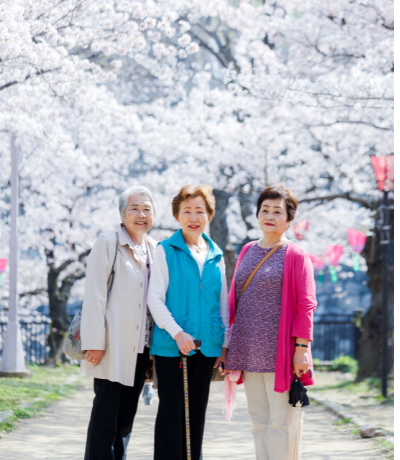10 Tips for Seniors Traveling with Health Concerns
19 November 2010
Traveling enables everyone, seniors included, to experience new places and cultures, and it can help rejuvenate their minds and souls. However, some seniors may have health problems that make them unable to travel like the general population. If reoccurring illness or injuries flare up during travel, they may find themselves in a great deal of trouble.
It may not be easy for them to find the medical services they need while they are in a foreign place, and the local doctors may not understand the severity of their conditions enough to provide the best treatment. While it can be risky for them to travel, seniors with health problems can take certain precautions to prevent and deal with health emergencies that may occur during their vacations.
Consult Your Doctor
Senior travelers who are suffering from serious health problems should consult their personal doctors before they decide to travel to a foreign place. They should find out from their doctors if there is a chance that their conditions will recur during travel. If their doctors feel that their conditions are stable enough, they will not discourage them from going on a vacation, since traveling can be beneficial to health. Some doctors will also give valuable travel advice to help seniors stay healthy throughout their vacations.
Bring Sufficient Medication
Seniors who are on medication should make sure that they have sufficient medication to use throughout their trip. If they are traveling to a foreign country, the medications they need may not be available, or they may be sold under different trade names. In case of an emergency, carry you doctors contact information and an extra copy of the prescription on hand.
Get Certification for Medications Containing Narcotic Drugs
Seniors who are using medications that contain narcotic or habit-forming drugs should get a certification from their doctors before traveling. Some medications are considered illegal and those who carry such medications may be arrested when they are trying to clear customs. It is best that travelers do some research to find out if your medications are legal in the countries that they are visiting. Make sure all of your medications are properly labeled.
Do Not Keep All Medications in One Place
Senior travelers have to take the necessary measures to ensure that their medications will not be lost during their trips. Since bags can get lost during travel, it is important to carry the medication needed for a 48-hour period in a pillbox and take it on the plane with you. If your luggage is lost during the trip, you will not be at a loss for medication. Contact your doctor and medical facility if your luggage is lost containing your medication.
Carry a Medical Alert
Those who have allergies or unique medical problems should wear a medical alert bracelet or keep a medical alert card in their wallets or purses. A medical alert states all the allergies and special medical conditions that a person is suffering from, and it serves as a useful reference for doctors and pharmacists in foreign countries. Medical alerts are also important when in the care of emergency medical services; they will know not to administer anything listed on the card or bracelet.
Get Travel Insurance
Senior travelers with health problems should purchase a senior travel insurance policy before traveling. Those who have travel insurance will get medical compensation if they fall ill during their travels. Travel medical insurance plans typically cover the policyholder in the event they are hospitalized or need medical attention for an injury or illness. Special travel insurance plans are available for seniors with unique medical needs.
Find Out about Special Air Travel Services
Seniors who have mobility problems should call their airlines or airports to find out about any special services that are available for disabled travelers. Certain airports have caregivers who can escort passengers to their planes. This makes air travel a lot more convenient. When purchasing airline tickets, be clear about your needs and preferences; airlines will do their best to accommodate travelers with special needs.
Avoid Food that is Detrimental to Health
When travelers are in foreign countries, they may get the opportunity to try different types of food that they have never eaten before. Those who need to abstain from consuming certain kinds of food because of health reasons should be extra careful when they are eating food that is unfamiliar to them. If they are unsure about the effects of certain foods on their health, the best thing to do is to eat something else.
Drink Only Boiled or Bottled Water
Senior travelers should also be aware that water in certain countries might not be safe for consumption. It is advisable that they drink only boiled or bottled water throughout their trips. This is especially necessary when they are taking medication.
Call Embassy When Health Problems Occur
When seniors fall ill during their vacations, they should call the nearest U.S. embassy for help. U.S. consular officers can recommend reliable doctors and hospitals, and they can help travelers contact their families back home.
Damian Tysdal is the founder of CoverTrip, and is a licensed agent for travel insurance (MA 1883287). He believes travel insurance should be easier to understand, and started the first travel insurance blog in 2006.
